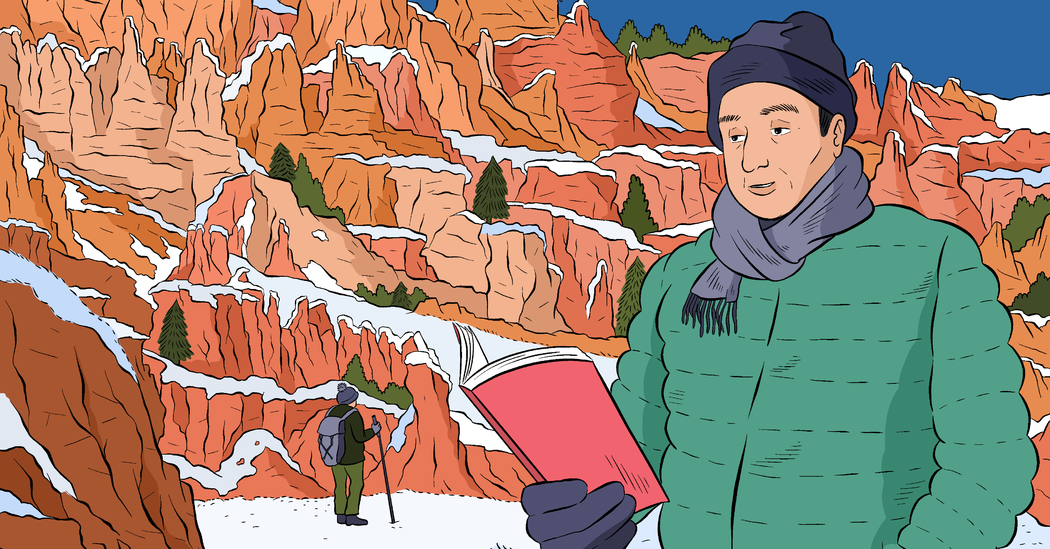What is the state of reading in Utah?
It begins by reading the land. Start with “The Broken Land: Adventures in Great Basin Geology,” by Frank DeCourten, paired with Stephen Trimble’s beautifully penned and photographed “The Sagebrush Ocean: A Natural History of the Great Basin.” For the high desert emblematic of Utah’s national parks, consult “The Geology of the Parks, Monuments and Wildlands of Southern Utah,” by Robert Fillmore. And for a more personal sense of Arches and Canyonlands, “Blow Sand In His Soul: Bates Wilson, The Heart of Canyonlands,” by Jen Jackson Quintano, is a spirited biography of Wilson, who advocated their protection. “A Naturalist’s Guide to Canyon Country,” by David B. Williams, is an essential companion, with more than 270 plants and animals identified and described within their ecological communities.
Indigenous voices are strong and varied in Utah. Ute historian Forrest S. Cuch’s excellent “A History of Utah’s American Indians” introduces the eight federally recognized tribal nations located in the state. “Navajo Mountain and Rainbow Bridge Religion,” by Karl W. Luckert, provides transcripts of oral histories made by Diné elders who shared traditional knowledge associated with Rainbow Bridge, one of the world’s largest sandstone arches, accessible by boat on Lake Powell. “Edge of Morning: Native Voices Speak for the Bears Ears,” edited by Jacqueline Keeler, is an evocation of why these sacred lands matter to Native communities; it includes voices such as Regina Lopez Whiteskunk, Willie Grayeyes and Jonah Yellowman. Stacie Shannon Denetsosie’s stunning debut collection, “The Missing Morningstar: And Other Stories,” was recently published, to rave reviews.
Which books can lead to a desert state of mind?
Begin with the classics, such as “Desert Solitaire: A Season in the Wilderness,” by Edward Abbey, an anti-memoir on wildness set in Arches National Park in the years when Abbey was a park ranger there. Published in 1968, it can be considered a Thoreauvian counterpoint to the turbulence surrounding the Vietnam War. Then, for a romp of a novel with a bent toward sabotage, Abbey’s “The Monkey Wrench Gang” may inspire you — as it did the environmental group Earth First! — to reimagine the Colorado River without Glen Canyon Dam. If you find Abbey’s politics problematic, I suggest the saucy “Desert Cabal: A New Season in the Wilderness,” by Amy Irvine.
“The Last…
Click Here to Read the Full Original Article at NYT > Travel…
